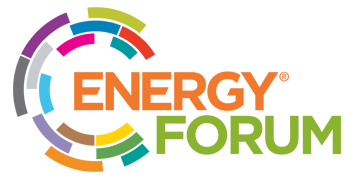Key Highlights
- Multi-energy systems (MES) offer a comprehensive approach to decarbonisation by integrating diverse energy sources and technologies, boosting efficiency, and minimising emissions across various sectors, from urban communities to industrial facilities.
- Practical examples of MES in action worldwide include Masdar City in the UAE, the Zero Emission Building in Vancouver, Canada, and the Neste oil refinery in Porvoo, Finland.
- Innovative solutions, like the Energy Web Decentralized Operating System, are revolutionising data exchange in the energy sector by promoting automated energy trading, enhancing efficiency, transparency, and decentralisation in energy markets.
- Coordinated efforts are essential to accelerate the transition to renewable-centric MES. Government-enacted policies, investment in infrastructure, and continued research are vital for driving advancements in MES technologies and fostering sustainable energy systems.
The European energy sector stands at a pivotal moment. The region's 2050 decarbonisation goals demand drastic cuts to carbon emissions, prompting innovation towards cleaner and more sustainable solutions. In this landscape, multi-energy systems (MESs) emerge as powerful tools, offering a holistic approach to decarbonisation.
Understanding Multi-Energy Systems
Multi-energy systems, at their essence, represent integrated networks that leverage a diverse array of energy sources and technologies. By combining energy sources, storage, and smart grid technologies, MES provides a versatile framework for optimising energy production, distribution, and consumption.
Efficiency: Co-generation plants, a cornerstone of MES, extract multiple forms of usable energy (electricity and heat) from a single source. This eliminates waste heat, which is a major issue in traditional power generation, boosting efficiency and minimising emissions.
Renewable Integration: MES allow the seamless integration of renewable energy sources such as solar and wind. Energy storage solutions, another key component, capture this intermittent energy, storing it for later use when demand is high, or supply is low.
Decarbonisation Potential Beyond Electricity: Heating and cooling systems are often significant sources of emissions, and MES help optimise these through technologies like efficient district heating networks and geothermal energy storage.
Join Dcarbonise 2024 in Shaping a Sustainable Future
Dcarbonise is Scotland's only exhibition and conference focused on reducing carbon emissions from the built environment and transportation systems. Together, let's redefine the possibilities for a sustainable future.
Call for Papers are Open for All-Energy & Dcarbonise
MES in Action: Practical Applications Worldwide
Multi-energy systems (MES) are gaining traction globally as they offer increased efficiency, flexibility, and sustainability compared to traditional, siloed energy approaches. Here are some real-world examples showcasing their diverse applications:
Masdar City, UAE
Masdar City is a pioneering sustainable urban community. This district-level eco-city integrates solar, wind, and natural gas power generation with district heating and cooling networks, optimising energy use and minimising environmental impact.
Zero Emission Building, Vancouver, Canada
Canada’s Zero Emission Building is a forward-thinking initiative by the City of Vancouver, aimed at promoting sustainable building practices and reducing carbon emissions from the built environment. The ZEB standard set by the city outlines a phased approach to ensure that new constructions in Vancouver achieve net-zero emissions.
Neste oil refinery, Porvoo, Finland
The Neste oil refinery in Porvoo, Finland, is a prime example of how multi-energy systems can be applied for decarbonisation in the industrial sector. The refinery reduces its carbon footprint and improves energy efficiency by producing of renewable fuels such as renewable diesel and sustainable aviation fuel, co-generation facilities for combined heat and power, waste heat recovery, integrating renewable energy sources, and exploring carbon capture and utilisation technologies.
Energy Web Decentralised Oracle (EWDO)
The energy web decentralised oracle (EWDO) is a blockchain-based platform designed to revolutionise data exchange in the energy sector. It acts as a bridge between data providers (e.g., renewable energy producers, weather stations) and data consumers (e.g., energy traders, grid operators). This empowers automated energy trading based on predefined conditions, boosting efficiency and transparency while promoting a fairer and more decentralised market.
Driving the Transition to Renewable-Centric MESs
The adoption of multi-energy systems is a significant move towards a renewable-centric energy future. Coordinated efforts across various fronts are necessary for the success of this transition:
Policy Support: Governments must enact supportive policies and provide incentives to accelerate the deployment of multi-energy systems. This includes feed-in tariffs, tax incentives, and renewable energy mandates that stimulate investment and innovation in the renewable energy sector.
Investment in Infrastructure and Technology: Strategic investments in infrastructure, such as upgrading existing grid infrastructure and expanding renewable energy capacity, are crucial for scaling up MES and maximising their potential benefits.
Research and Innovation: Continued research and innovation are also critical for driving advancements in MES technologies, improving system efficiency, and overcoming technical challenges. Collaborative efforts between industry stakeholders, research institutions, and policymakers can foster knowledge sharing and facilitate the development of best practices for MES integration.

